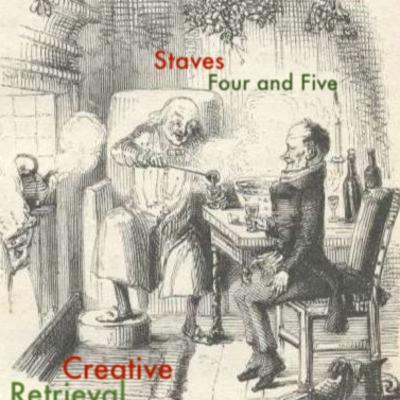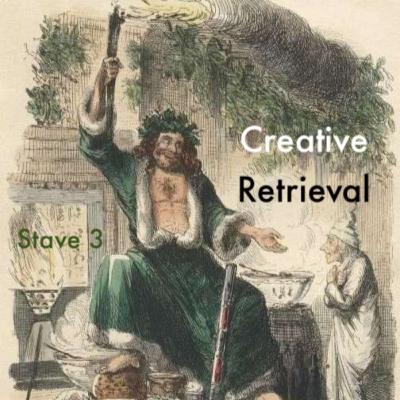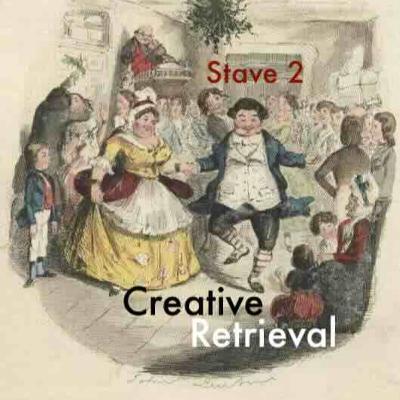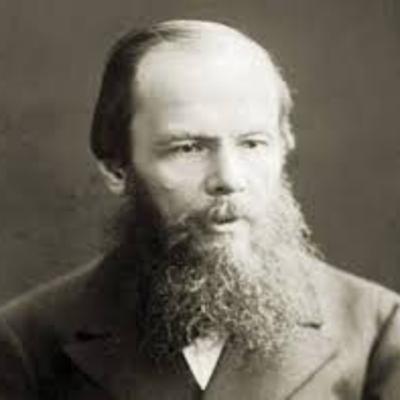Discover Creative Retrieval
Creative Retrieval

Creative Retrieval
Author: Creative Retrieval
Subscribed: 15Played: 677Subscribe
Share
© Creative Retrieval
Description
A Catholic philosophical/theological podcast aimed at retrieving great works of the tradition. Works discussed: Dostoyevsky's Brothers Karamazov, Gregory of Nyssa, Norris Clarke (St. Thomas Aquinas Lecture), Plato's Republic, Hans urs von Balthasar's Theo-Logic, Dickens' A Christmas Carol.
If you have thoughts, questions, or comments please email us; we love receiving feedback! CreativeRetrieval@gmail.com
If you have thoughts, questions, or comments please email us; we love receiving feedback! CreativeRetrieval@gmail.com
91 Episodes
Reverse
This episode discusses Book 8 of St. Augustine's Confessions.
This episode discusses Book 7 of St. Augustine's Confessions.
This episode covers Book 6 of St. Augustine's Confessions.
This episode covers Book 5 of St. Augustine's Confessions.
This episode covers Book 4 of St. Augustine's Confessions.
This episode covers Book 3 of St. Augustine's Confessions.
This episode covers Book 2 of St. Augustine's Confessions.
This episode covers book 1 of St. Augustine's Confessions.
In this discussion I finish talking about Dickens'A Christmas Carol,by discussing Staves 4 and 5.The great gift Scrooge receives from the three ghosts is a awareness of the gift that had always already been given; this brings about a new life of gratitude in Scrooge. Life gets its full meaning only when one becomes grateful for what one has always already had - life itself. This is the meaning of the Christmas: the gift of Life Itself among us.
In Stave 3 of Charles Dickens' A Christmas Carol, we find the ghost of Christmas Present, revealing to Scrooge the excessive abundance of the feast which is the present. I argue that it is gratitude that is the meaning of life, and hence the source of joy and happiness. The Crachit's feast is meager, but because the are grateful for it, it becomes more than they need and hence more than a meager feast, it becomes a great feast. Blessed are the poor in spirit, for theirs is the kingdom of heaven!
In stave 2 of Charles Dickens' A Christmas Carol, we find Scrooge visited (haunted) by the ghost of Christmas Past - which is his own past. Our pasts can often haunt us, and perhaps they should haunt us. The root of this haunting is that we are able to judge our present lives in light (not the Ghost has a light shining forth from his head) of our past life...or better yet, in the case of Scrooge, we are able to judge our current death in light of our former life. This awakens us to what we once knew and experienced so clearly but have since forgotten - viz. that the meaning of life lies in the gratitude and joy of being.
In this first of five lectures, I offer a Christian existentialist reading of Charles Dickens's masterpiece A Christmas Carol.
This work is about the meaning of Christmas, which is the meaning of the incarnation. The life of the world, the eternal, entering into the now, in order to redeem the past, present and future through his death. The incarnation isn't separable from the crucifixion, just as the meaning of life is not separable from the meaning of death, and the meaning of the past and future is not separable from the present.
Scrooge's conversion must begin with the acceptance of his death - which he comes to accept in the person of Marley (who is himself; he never painted out 'Marley' from the "Marley and Scrooge" sign) ; with the fact that he is a "...covetous old sinner." Scrooge cannot approach the meaning of his life until he acknowledges that he - like Marley, or even more so - is truly a dead man, as dead as a door nail. The book opens with "Marley was dead to begin with," it could just as well began: "Scrooge was dead to begin with"...and unless we accept this fact "nothing wonderful can become of this story."
Ch. 2 of Theo-Logic; "Truth as Freedom"
In this lecture I discuss the second half of the first chapter of Balthasar's Theo-Logic. I talk about the relationship of knowledge to creation, and how knowledge requires a knowing of another as other even in its receiving of the other into itself.
I discuss the first half of chapter 1 ("Truth as Nature") of Hans Urs von Balthasar's book Theo-Logic, v.1: Truth of the World. In this lecture I focus on the first two sections ("A. The Preliminary Concept of Truth" and "B. The Subject"). I contrast Balthasar's approach to truth with Kant's Transcendental Idealism.
The main thesis is that to be a knower (subject) is a loving servant of the object which allows the object to be known as other; the subject is an active receiver of objects, which allows them to be true in their unconcealment/disclosure - aletheia.
I talk about the importance of memory throughout the Brothers Karamazov. I also talk about the power of the Good to bring good out of all things, even trama, sin, and brokenness.
We talk about fatherhood, and why Dimitri is a Job figure.
We talk about the trial of Mitya.
We talk about the first part of book 11, and especially Dimitri's discussion on the Hymns he will sing underground in Siberia.
We talk about Kolya, Illusha, and the roll of children in the Brothers Karamazov.










